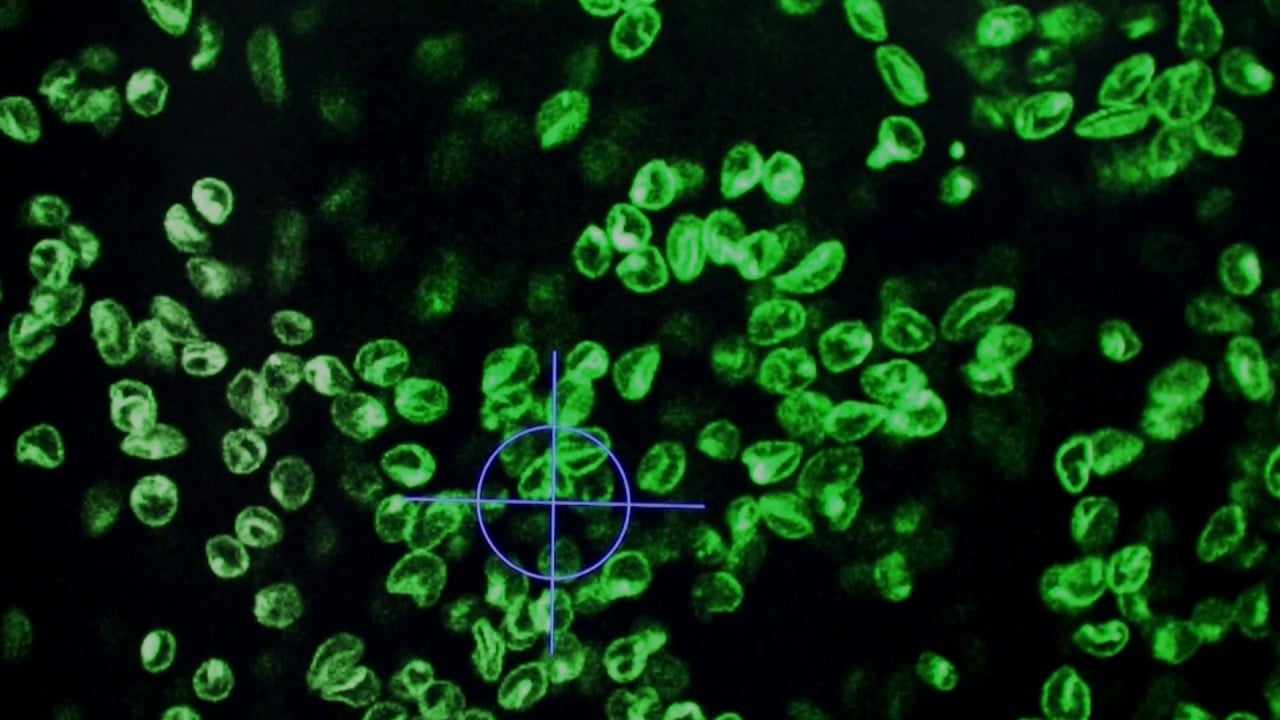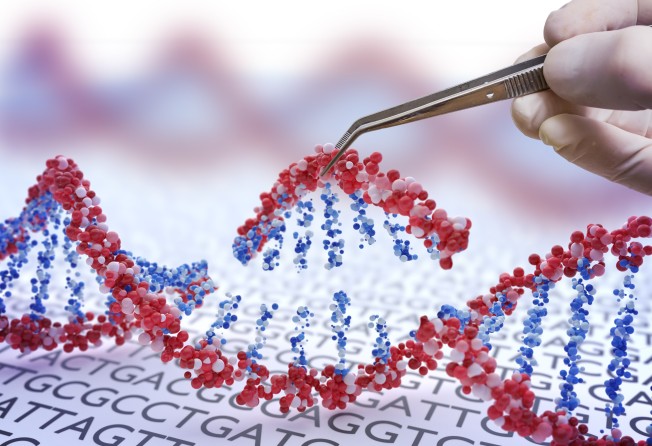
02:04
Gene therapy which could slow human ageing found by Chinese researchers in studies on mice

Chinese scientists say they have designed an automated genetic editing platform capable of high accuracy in predicting editing efficiency.
The platform, which is powered by artificial intelligence algorithms, is powerful enough to automatically edit thousands of cell samples within a week, according to researchers at the Chinese Academy of Sciences’ Tianjin Institute of Industrial Biotechnology.
It could help speed up the development and clinical application of genetic therapies and research, the scientists behind the platform said in their paper published in peer-reviewed journal Nature Communications last month.
Single nucleotide variations (SNVs) in the human genome, also known as DNA sequence variations, may cause cell abnormality and genetic disease.
There is no effective treatment for some of the rare diseases caused by such cell mutations and prolonged use of the medicines used to treat them may even put the patient’s life at risk.
A new “base editor” technology from researchers led by professors Wang Meng, Bi Changhao and Zhang Xueli at the Tianjin Institute could offer a solution.
According to the developers, base editors enable direct, irreversible correction of base mutations, and offer a promising future for curing genetic diseases caused by SNVs.
Large-scale generation of cell disease models for base editing, or mutation studies, is currently heavily dependent on manual operations, which involves introducing SNVs into cells. However, the process is time-consuming, expensive and error-prone.
The new automatic platform could offer a cost-effective solution, the researchers said in their paper.
The platform would be able to perform the full genome editing process – from guide RNA (gRNA) design to the analysis of editing results – with better consistency and at a lower cost, the team said.
It would help to overcome current difficulties in cell editing using existing technology, while maintaining the purity of cells, and carry out automatic design, fabrication and testing of the editing process on a large scale.
The team also developed an AI learning model based on the sequence information and large-scale editing data set acquired by the platform, to predict the efficiency of the editing.
The new method increased prediction accuracy by 20 per cent over the commonly used BE-Hive machine learning model, the paper said.
“Molecular biology is an arduous process and the claim of a fully automated process is very interesting,” said a researcher who reviewed the paper.
“The paper … contains significant results in the field,” said the researcher who asked to remain anonymous.